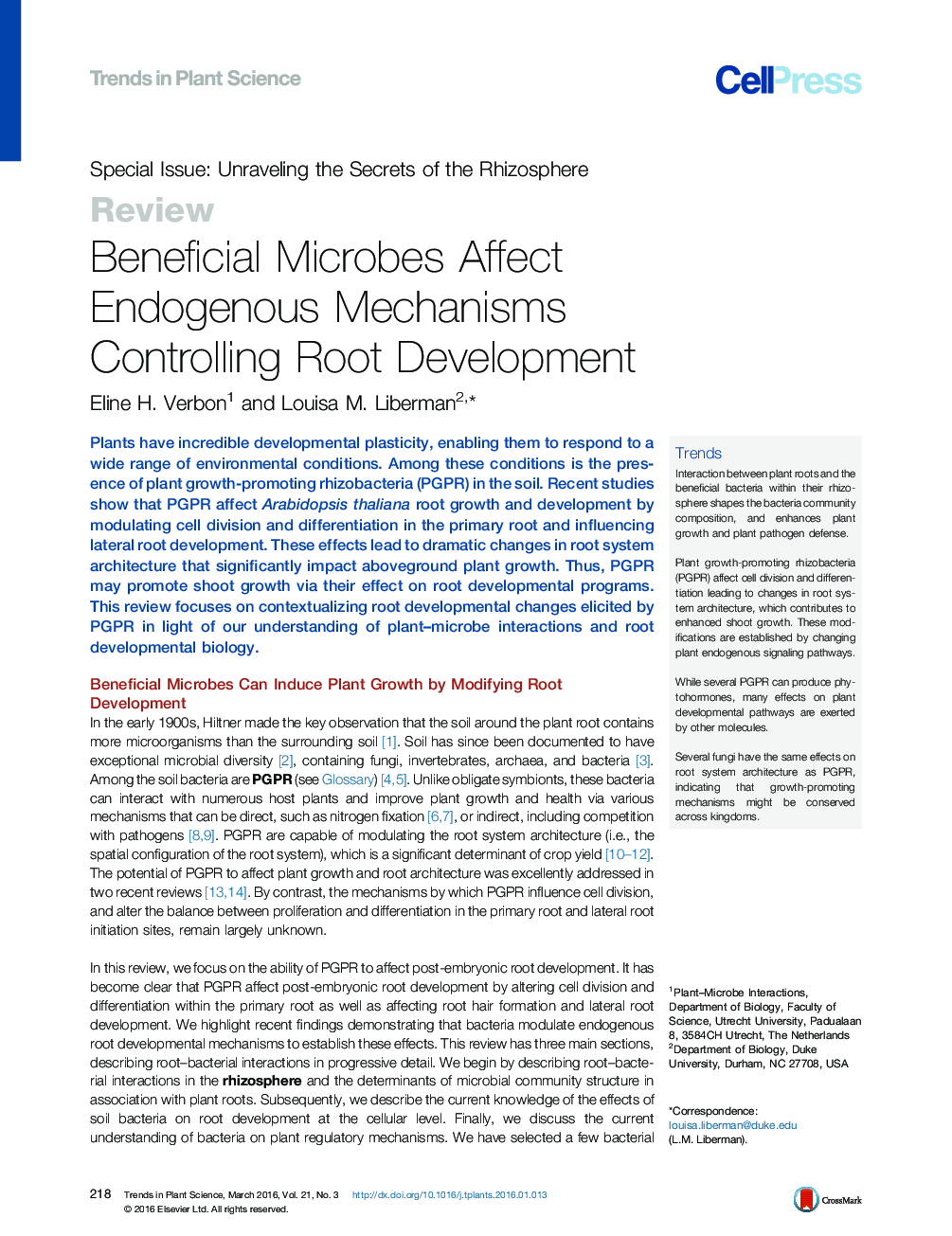| Article ID | Journal | Published Year | Pages | File Type |
|---|---|---|---|---|
| 2825749 | Trends in Plant Science | 2016 | 12 Pages |
Plants have incredible developmental plasticity, enabling them to respond to a wide range of environmental conditions. Among these conditions is the presence of plant growth-promoting rhizobacteria (PGPR) in the soil. Recent studies show that PGPR affect Arabidopsis thaliana root growth and development by modulating cell division and differentiation in the primary root and influencing lateral root development. These effects lead to dramatic changes in root system architecture that significantly impact aboveground plant growth. Thus, PGPR may promote shoot growth via their effect on root developmental programs. This review focuses on contextualizing root developmental changes elicited by PGPR in light of our understanding of plant–microbe interactions and root developmental biology.
TrendsInteraction between plant roots and the beneficial bacteria within their rhizosphere shapes the bacteria community composition, and enhances plant growth and plant pathogen defense.Plant growth-promoting rhizobacteria (PGPR) affect cell division and differentiation leading to changes in root system architecture, which contributes to enhanced shoot growth. These modifications are established by changing plant endogenous signaling pathways.While several PGPR can produce phytohormones, many effects on plant developmental pathways are exerted by other molecules.Several fungi have the same effects on root system architecture as PGPR, indicating that growth-promoting mechanisms might be conserved across kingdoms.
